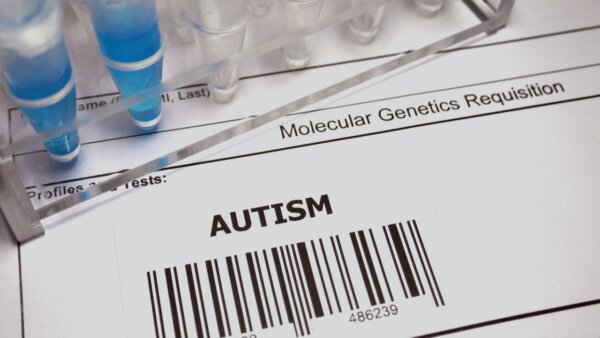
What Are the Neurological Symptoms of a Concussion?
Executive summary: A concussion is a mild traumatic brain injury that disrupts normal brain function, often due to a blow or sudden jolt to the head. Neurological symptoms of concussion can include headaches, dizziness, confusion, memory lapses, blurred vision, and cognitive difficulties such as slowed processing or impaired focus. Children may exhibit irritability, changes in sleep patterns, or behavioral shifts. While most concussions resolve within weeks, repeated injuries or delayed diagnosis can lead to long-term effects, including chronic traumatic encephalopathy (CTE). Emerging research, including studies funded by the Brain Research Foundation (BRF), highlights the importance of early detection, monitoring, and rehabilitation in supporting brain healing. Preventive measures and structured neurological rehabilitation further reduce complications, highlighting the critical role of awareness and ongoing research.
Key Takeaways:
- Neurological symptoms vary but commonly include headaches, dizziness, confusion, memory issues, and visual disturbances.
- Cognitive effects—such as slower thinking, impaired focus, and reduced executive function—can persist even after other symptoms resolve.
- Pediatric concussion symptoms may differ, often manifesting as irritability, sleep disruption, or behavioral changes, requiring careful monitoring.
- Long-term consequences, including CTE and other cognitive impairments, are possible, especially with repeated injuries or delayed intervention.
- Research and early care matter: BRF-funded studies highlight gaps in our understanding, and supporting research through donations can advance treatments, prevention strategies, and neurological rehabilitation.
Introduction to Concussions
Concussions are a form of mild traumatic brain injury (mTBI) that occurs when the brain experiences a sudden impact or jolt. Though often associated with sports or accidents, concussions can affect anyone, regardless of age or activity. Understanding the neurological symptoms of concussion is essential for early detection, proper care, and prevention of long-term complications. With growing awareness of the cognitive, emotional, and physical effects of brain trauma, emerging research is helping doctors, caregivers, and patients recognize the full scope of concussion-related challenges. This article helps guide you to understand the complexities of concussions and the symptoms associated with them.
Understanding Concussions
What is a Concussion?
A concussion occurs when the brain is shaken inside the skull, temporarily disrupting normal brain function. This can happen due to a direct blow to the head, a fall, or sudden acceleration-deceleration movements. While concussions are often labeled “mild” compared to more severe brain injuries, the impact on neurological function can be significant. Keywords such as brain trauma and mild traumatic brain injury (mTBI) reflect the complexity of these injuries, which can affect memory, coordination, cognition, and emotional health.
How Concussions Affect the Brain
When a concussion occurs, the brain undergoes a cascade of physiological events. Brain inflammation after concussion is common, causing swelling and disrupting communication between neurons. This can result in headaches, confusion, difficulty concentrating, and memory lapses. In some cases, repeated concussions can prevent full brain healing, highlighting the importance of monitoring symptoms and seeking care promptly. Keywords like brain healing after trauma emphasize that recovery is a dynamic process that can take days, weeks, or even months.
Neurological Symptoms of Concussion
Common Neurological Symptoms
Concussions can present with a wide range of neurological symptoms, including:
- Headaches or pressure in the head
- Dizziness or balance problems
- Blurred or double vision
- Nausea or vomiting
- Confusion or disorientation
- Memory lapses (concussion and memory loss)
Recognizing these symptoms early is vital. Even if an individual does not lose consciousness, subtle signs may indicate a significant injury. Keywords like concussion symptoms and neurological symptoms of concussion should guide caregivers and patients in identifying issues before they escalate.
Cognitive Effects of Concussion
Cognitive impairments are among the most concerning consequences of a concussion. Individuals may experience:
- Difficulty focusing or processing information
- Impaired short-term memory
- Slower decision-making or problem-solving abilities
- Reduced executive function
These effects, collectively referred to as cognitive effects of concussion, can disrupt daily life, school performance, and work. They may persist for weeks or months, underscoring the importance of proper evaluation and rehabilitation.
Pediatric Concussion Symptoms
Children often present different neurological symptoms than adults, and recovery timelines can vary. Pediatric concussion recovery may involve heightened irritability, changes in sleep patterns, delayed cognitive milestones, or behavioral changes. Neurological rehabilitation after concussion in children focuses on cognitive exercises, structured routines, and careful monitoring to support healthy brain development. Early detection in pediatric cases is particularly crucial because the developing brain is more vulnerable to repeated injuries.
Emerging Research in Concussions
Long-Term Effects
Emerging studies are shedding light on the long-term effects of concussion. Repeated head injuries may increase the risk of developing chronic traumatic encephalopathy (CTE), a progressive neurodegenerative disease. Even a single concussion can have lasting effects on cognition, mood, and neurological function. Understanding these risks helps inform strategies for concussion prevention and long-term care planning.
Recent Studies & BRF-Funded Research
Organizations like the Brain Research Foundation (BRF) are at the forefront of funding innovative research into concussions. For example, in 2012, BRF awarded a $30,000 grant to study concussive events among grade school children, aiming to improve pediatric concussion diagnosis and management (BRF Newsletter Summer 2012). Other BRF initiatives have supported educational programs to enhance concussion awareness and prevention in schools (BRF Newsletter Fall 2010).
Despite these advances, experts note that much about the brain’s response to trauma remains unknown. Research funded by BRF continues to explore new diagnostic tools, rehabilitation strategies, and long-term impacts, helping fill crucial knowledge gaps in neuroscience. Keywords like emerging concussion research naturally align with these pioneering studies.
Prevention and Rehabilitation
Concussion Prevention Strategies
Preventing concussions begins with awareness and proactive measures. Effective concussion prevention strategies include:
- Using proper protective equipment, such as helmets in sports and cycling
- Following safe techniques in contact sports
- Educating coaches, parents, and athletes about early symptom recognition
By minimizing the risk of head injuries, these strategies reduce the likelihood of lasting neurological deficits.
Neurological Rehabilitation After Concussion
Recovery from a concussion often requires structured rehabilitation. Neurological rehabilitation after concussion may involve:
- Cognitive therapy to restore memory, focus, and executive function
- Physical therapy for balance and coordination
- Mental health support to address anxiety, depression, or irritability
- Gradual return-to-activity programs to ensure safe recovery
Research emphasizes that tailored rehabilitation programs improve long-term outcomes, particularly when guided by clinicians familiar with concussion-specific protocols. Keywords like brain healing after trauma and neurological rehabilitation after concussion are highly relevant here.
When to Seek Medical Attention
Recognizing when a concussion requires professional care can prevent complications and support optimal recovery.
Red Flag Symptoms
- Worsening or severe headaches
- Repeated confusion or disorientation
- Vomiting, nausea, or balance issues
- Changes in speech, behavior, or coordination
- Loss of consciousness
Knowledge Gaps in Concussion Research
Despite decades of research, a large proportion of mild traumatic brain injuries remain underdiagnosed or poorly understood, particularly in pediatric populations. The Brain Research Foundation (BRF), through grants such as the 2012 study on concussive events in children (BRF Newsletter Summer 2012), highlights that we still don’t fully understand the long-term neurological consequences of repeated concussions. This knowledge gap underscores the importance of monitoring symptoms, seeking medical evaluation, and supporting ongoing research.
Supporting Further Research
You can help advance concussion research by donating to the Brain Research Foundation, which funds studies into pediatric concussions, memory loss, and brain healing. Your contribution supports scientists in exploring innovative treatments and prevention strategies that could improve neurological health for millions.
FAQ About Concussions
What are the first signs of a concussion?
Early signs may include headache, dizziness, confusion, blurred vision, or nausea. Even without loss of consciousness, these symptoms indicate potential brain trauma.
How long do neurological symptoms of concussion last?
Recovery timelines vary. Most individuals experience improvement within 7–14 days, but some symptoms, particularly cognitive effects, can persist for several months.
Can children fully recover from a concussion?
Yes, with proper evaluation and structured rehabilitation, children typically recover fully. However, repeated concussions increase the risk for long-term cognitive issues.
What is the difference between a concussion and CTE?
A concussion is an acute brain injury, often temporary. Chronic traumatic encephalopathy (CTE) is a progressive neurodegenerative condition linked to repeated head trauma, with long-term cognitive and behavioral consequences.

Reviewed by Terre A. Constantine, Ph.D. (September 2025): Terre A. Constantine, Ph.D., is the Executive Director and CEO of the Brain Research Foundation. Terre is dedicated to BRF’s mission because of her background as a trained scientist. She understands the importance of research and the difficulty of obtaining funding for innovative ideas. She earned her Ph.D. from the University of Pittsburgh Medical School in the Department of Pharmacology with a focus on drug addiction and stroke. She continued her research at The Scripps Research Institute, where she studied neuroregeneration.
Links: LinkedIn | Bloomberg | The Daily Pennsylvania


